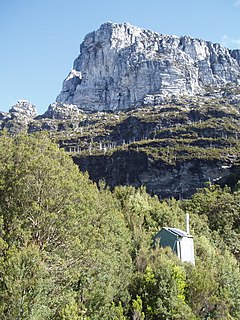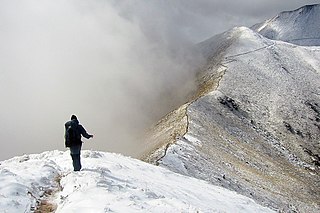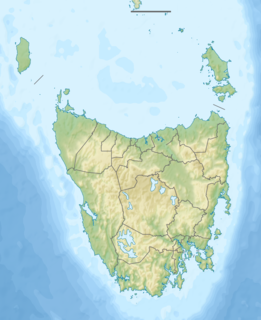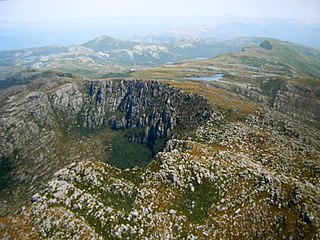| Narcissus Hut | |
|---|---|
 | |
| Coordinates | 42°0′45.1″S146°6′5.8″E / 42.012528°S 146.101611°E Coordinates: 42°0′45.1″S146°6′5.8″E / 42.012528°S 146.101611°E |
| Country | Australia |
| State/territory | Tasmania |
| National park | Cradle Mountain-Lake St Clair National Park |
| Construction | |
| Built in | 1935 |
| Built by | National Park Board in 1938 rebuilt 1963 |
| Built for | Hiking on Overland Track |
| Administration | |
| Maintained by | Tasmania Parks and Wildlife Service |
| Accessibility | |
| Accessed by | Foot and/or boat |
Narcissus Hut is an alpine hut located in the Central Highlands of Tasmania. It was built in 1935 and rebuilt in 1963. [1]

A mountain hut is a building located high in the mountains, generally accessible only by foot, intended to provide food and shelter to mountaineers, climbers and hikers. Mountain huts are usually operated by an Alpine Club or some organisation dedicated to hiking or mountain recreation.
The Central Highlands is a region in Tasmania, Australia where geographical and administrative boundaries closely coincide. It is also known as The Lake Country of Tasmania.
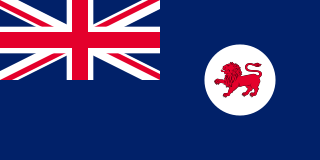
Tasmania is an island state of Australia. It is located 240 km (150 mi) to the south of the Australian mainland, separated by Bass Strait. The state encompasses the main island of Tasmania, the 26th-largest island in the world, and the surrounding 334 islands. The state has a population of around 526,700 as of March 2018. Just over forty percent of the population resides in the Greater Hobart precinct, which forms the metropolitan area of the state capital and largest city, Hobart.
Contents
Narcissus Hut is located on Lake St Clair, on the Overland Track.

Lake St Clair or leeawulenna is a natural freshwater lake located in the Central Highlands area of Tasmania, Australia. The lake forms the southern end of the Cradle Mountain-Lake St Clair National Park. It has an area of approximately 45 square kilometres (17 sq mi), and a maximum depth of 160 metres (520 ft), making it Australia's deepest lake.

The Overland Track is one of Australia's most famous bushwalking tracks, and is crosses the Cradle Mountain-Lake St Clair National Park in Tasmania. More than nine thousand walkers each year complete the track. Officially, the track runs for 65 kilometres (40 mi) from Cradle Mountain to Lake St Clair. However, many choose to add the hike along Lake St Clair as a natural extension, bringing the length to 82 kilometres (51 mi). The track winds through terrain ranging from sheer mountains, temperate rainforest, wild rivers and alpine plains all in the Tasmanian Wilderness World Heritage Area.







